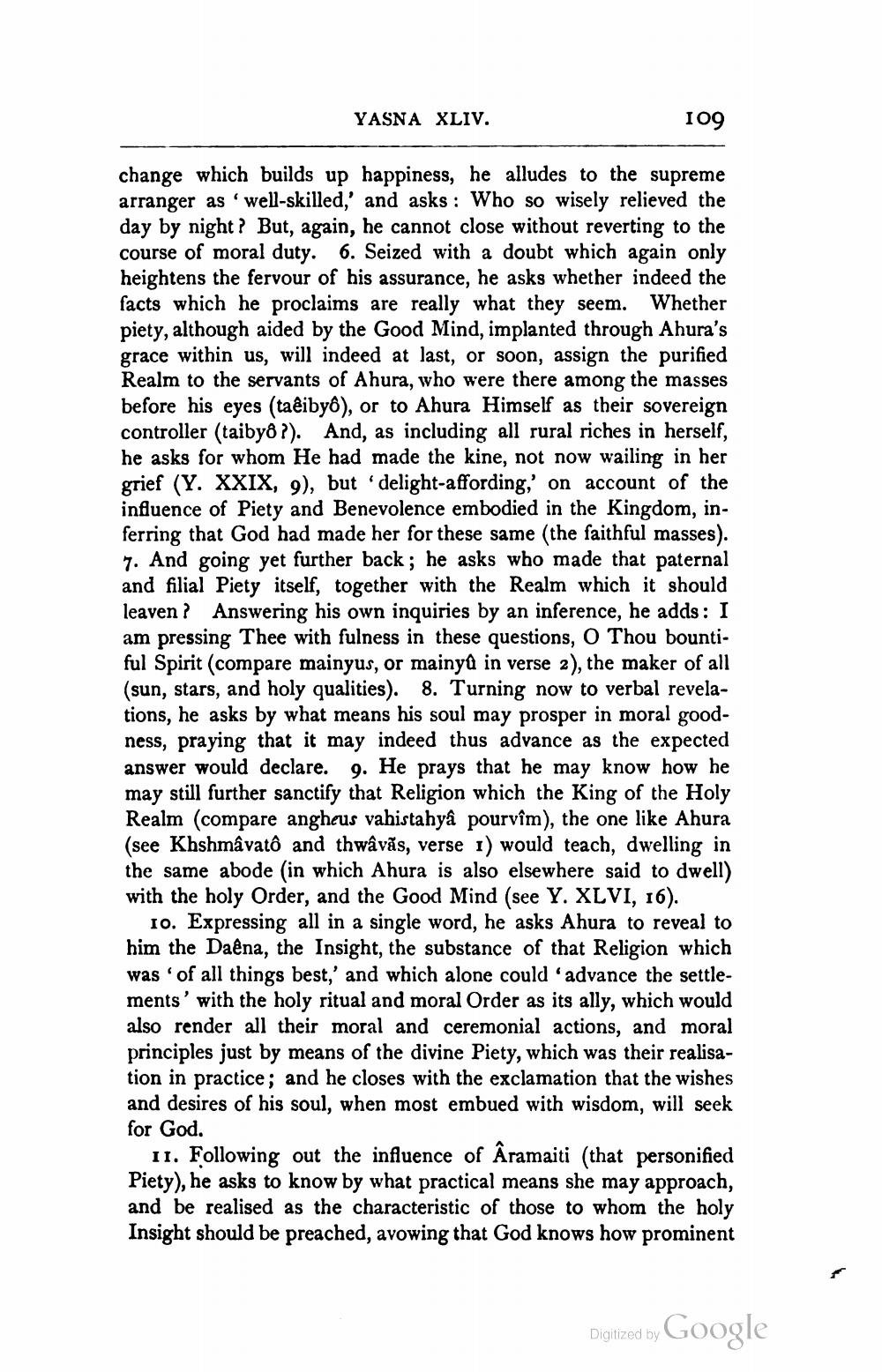________________
YASNA XLIV.
109
change which builds up happiness, he alludes to the supreme arranger as well-skilled,' and asks : Who so wisely relieved the day by night? But, again, he cannot close without reverting to the course of moral duty. 6. Seized with a doubt which again only heightens the fervour of his assurance, he asks whether indeed the facts which he proclaims are really what they seem. Whether piety, although aided by the Good Mind, implanted through Ahura's grace within us, will indeed at last, or soon, assign the purified Realm to the servants of Ahura, who were there among the masses before his eyes (taêibyo), or to Ahura Himself as their sovereign controller (taibyo?). And, as including all rural riches in herself, he asks for whom He had made the kine, not now wailing in her grief (Y. XXIX, 9), but delight-affording,' on account of the influence of Piety and Benevolence embodied in the Kingdom, inferring that God had made her for these same (the faithful masses). 7. And going yet further back; he asks who made that paternal and filial Piety itself, together with the Realm which it should leaven? Answering his own inquiries by an inference, he adds: I am pressing Thee with fulness in these questions, O Thou bountiful Spirit (compare mainyus, or mainya in verse 2), the maker of all (sun, stars, and holy qualities). 8. Turning now to verbal revelations, he asks by what means his soul may prosper in moral goodness, praying that it may indeed thus advance as the expected answer would declare. 9. He prays that he may know how he may still further sanctify that Religion which the King of the Holy Realm (compare angheus vahistahyâ pourvîm), the one like Ahura (see Khshmâvatô and thwâvās, verse 1) would teach, dwelling in the same abode in which Ahura is also elsewhere said to dwell) with the holy Order, and the Good Mind (see Y. XLVI, 16).
10. Expressing all in a single word, he asks Ahura to reveal to him the Daéna, the Insight, the substance of that Religion which was of all things best,' and which alone could advance the settlements' with the holy ritual and moral Order as its ally, which would also render all their moral and ceremonial actions, and moral principles just by means of the divine Piety, which was their realisation in practice; and he closes with the exclamation that the wishes and desires of his soul, when most embued with wisdom, will seek for God.
11. Following out the influence of Âramaiti (that personified Piety), he asks to know by what practical means she may approach, and be realised as the characteristic of those to whom the holy Insight should be preached, avowing that God knows how prominent
Digitized by
Digitized by Google




